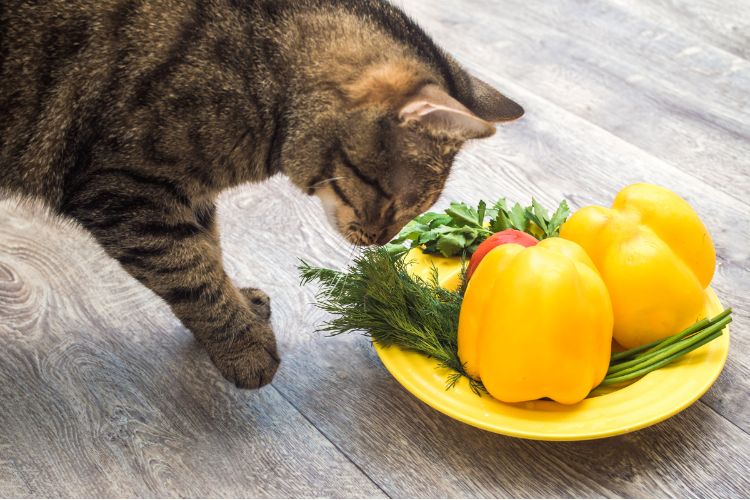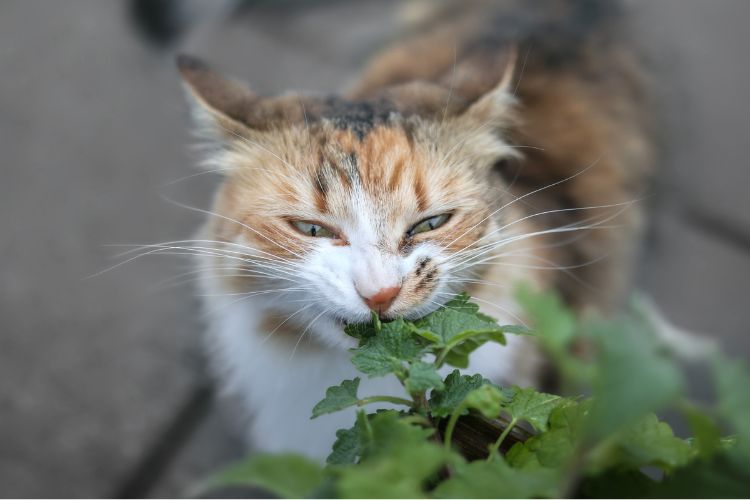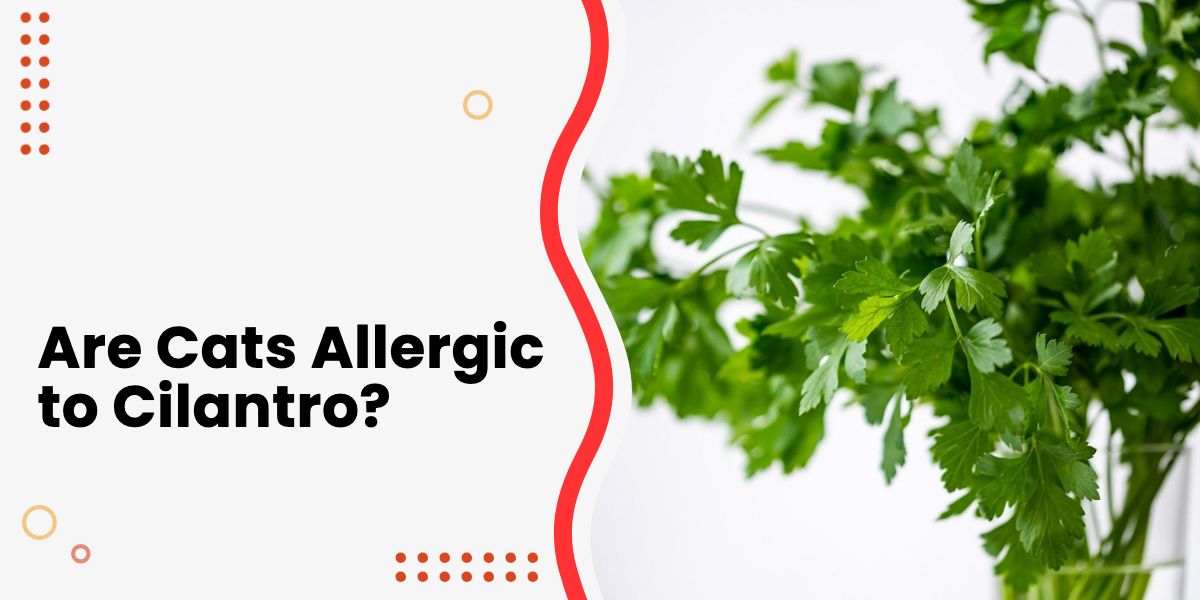If you have a garden, chances are your curious cat will sample the fresh herbs. But are cats allergic to cilantro? No allergy worries! While some felines might experience tummy trouble with large quantities, this fragrant herb is generally safe for occasional nibbles.
The ASPCA confirms its non-toxic status for our furry friends. But remember, moderation is key. Start with a tiny sprig and monitor for any digestive hiccups. If all’s well, your cat can enjoy a bit of cilantro’s lemony zest every now and then.
Consult your vet for personalized advice if you’re unsure.
Table of Contents
Is Cilantro Cat Kryptonite or Kitty Catnip?

Cilantro, or Coriandrum sativum, is a green, zesty herb that grows in home gardens, on kitchen window sills, or in the wild. Thus, it’s fully accessible to cats.
Cats are obligate carnivores. This means that they depend primarily on meat for their diet. When they forage in the garden and taste a few herbs, that’s often out of curiosity.
The Animal Poison Control Center (ASPCA) lists cilantro as a safe herb when used in small amounts. There’s always a possibility that your pet might be sensitive to cilantro. It’s best to start with a tiny bite, then let your cat eat more.
You might see cilantro listed under other names like coriander, dhania, and Chinese parsley. It’s important to read the labels before giving your cat any food.
are cats allergic to cilantro?
Cilantro allergy is a rare occurrence among felines. But it’s a good practice to watch for signals of an allergic reaction. It’s best to stay vigilant whenever your cat is exposed to a new food, material, or place.
Here are some of the signs that your cat might be having an allergic reaction:
- Skin irritation is the first sign. Cats scratch themselves, and their skin looks itchy and red.
- Respiratory issues are common with allergies. Difficulty breathing, wheezing, or coughing are alarming symptoms.
- Hypersensitivity in cats can cause swelling in their nozzles or paws.
- Skin problems are associated with food allergies in cats. Inflammation causes hair loss and scabbing.
- Food allergies can cause digestive problems. Common presentations are vomiting, diarrhea, stomach bloating, and loss of appetite.
Spotting an allergic reaction can be tricky. If your cat presents with concerning symptoms, you should observe the timing. List all the foods it ate in the previous 24 hours. Also, consider all the possible allergens in your pet’s surroundings.
Finally, consult a veterinarian if your cat remains lethargic, distressed, or has other odd symptoms. A specialist would conduct a cat food allergy test to come up with conclusive results.
If your cat has a food allergy, it’s important to make changes to its diet. You can try a z/d cat food alternative to manage your cat’s food allergy symptoms.
Is Cilantro Like Catnip for Cats?

No, cilantro is nothing like catnip for cats. Catnip contains nepetalactone, which is a volatile oil that mimics feline sex hormones. More than 70% of cats become playful and even euphoric when exposed to catnip.
Cilantro lacks the magic ingredient in catnip. So it doesn’t trigger the same behavior in cats. It has a zesty flavor, which many cats find appealing. Not in the same frenzied manner as catnip, though.
What Happens if Cats Eat Cilantro?
If a cat doesn’t get an upset stomach or allergic reaction after eating cilantro, it might benefit from it.
Cilantro is rich in vitamins and antioxidants. It’s a good source of vitamins A, C, and K. It’s also packed with beta-carotene and quercetin, which contribute to overall wellness.
The limonene in cilantro might act as a natural deterrent for ticks and fleas. Few studies have asserted this possibility, but further research is needed.
Cats like variety. And to that end, they could nibble on cilantro to enjoy its freshness and zesty taste.
Are Any Herbs Poisonous to Cats?
Unfortunately, some garden flowers, herbs, and house plants are harmful to cats. Lilies, cycads, sago palms, and Dieffenbachia are poisonous to many cats. A tiny nibble of any of these plants would send a feline to the vet.
It’s worth noting that seemingly benign vegetables like garlic, onions, chives, leeks, and shallots are unsafe for cats. All of these contain N-propyl disulfide. It’s a chemical that can damage red blood cells and lead to anemia in cats. Even small amounts can be dangerous.
Herbs like mint, oregano, marjoram, and parsley are often safe for cats in small amounts. But they might cause digestive issues or skin rashes if the cat ingests a big bite.
Conclusion
The aromatic herb cilantro might not turn your cat into a dancing feline, but it’s certainly not their kryptonite!
Some internet whispers might raise concerns about “cilantro allergies.” But the truth is far less dramatic. While it’s best to introduce any new food cautiously, cilantro is generally considered safe for cats in small amounts.
Think of it as a zesty treat, not a dietary staple. The ASPCA gives it a green light as non-toxic. And some cats might even enjoy a nibble for its unique citrusy scent. It even boasts vitamins and antioxidants, offering a tiny health boost in moderation.

I’ve been living with cats since 2008 and I can confidently say I have more feline friends than humans lol. I currently live with 5 cats in different life stages; two of them are less than one year old, one is 2-ish years old and the oldest two are 9-ish years old. I’ve developed a strong bond with cats over the years and I’m eager to share my experience through this blog. You can learn more about my cats here.

